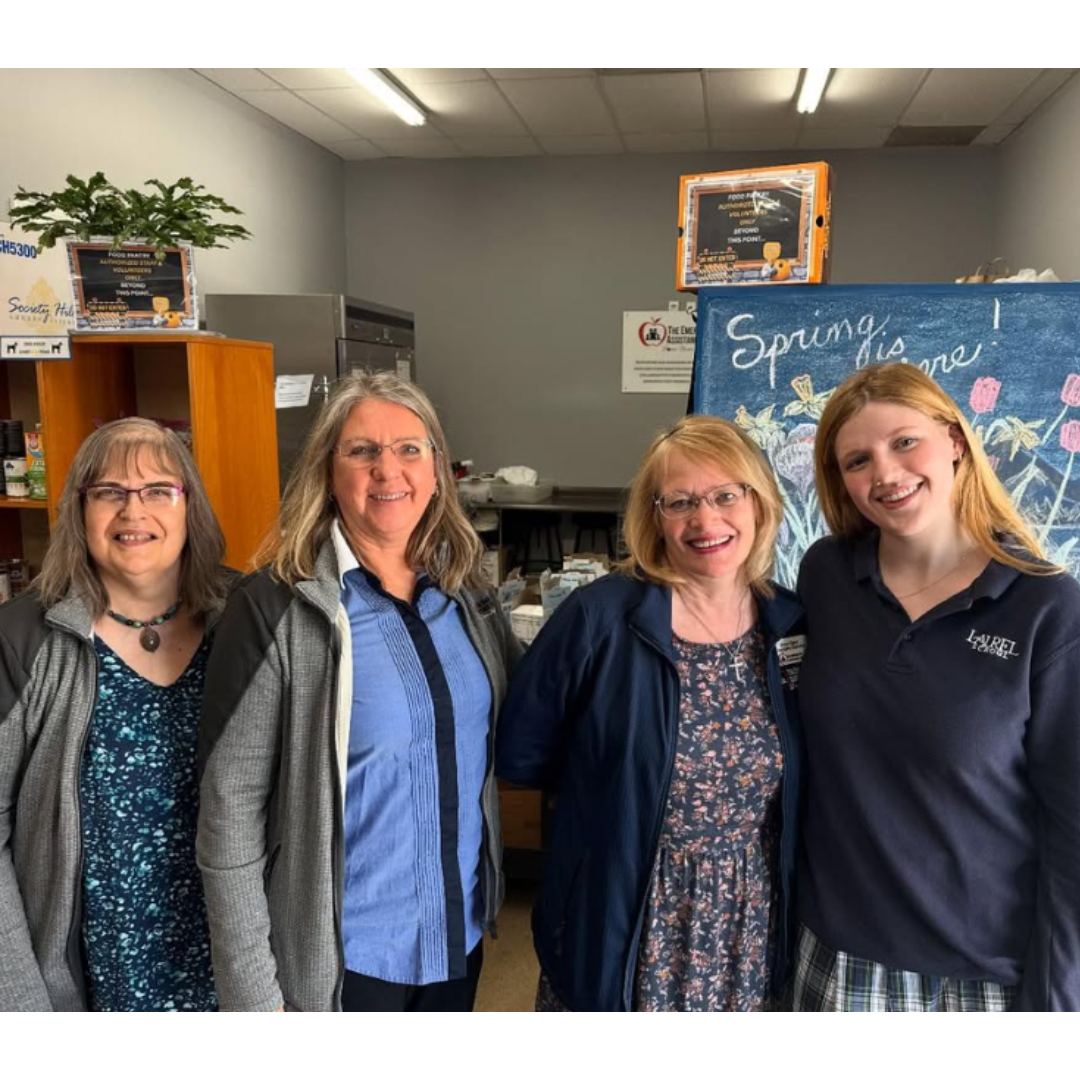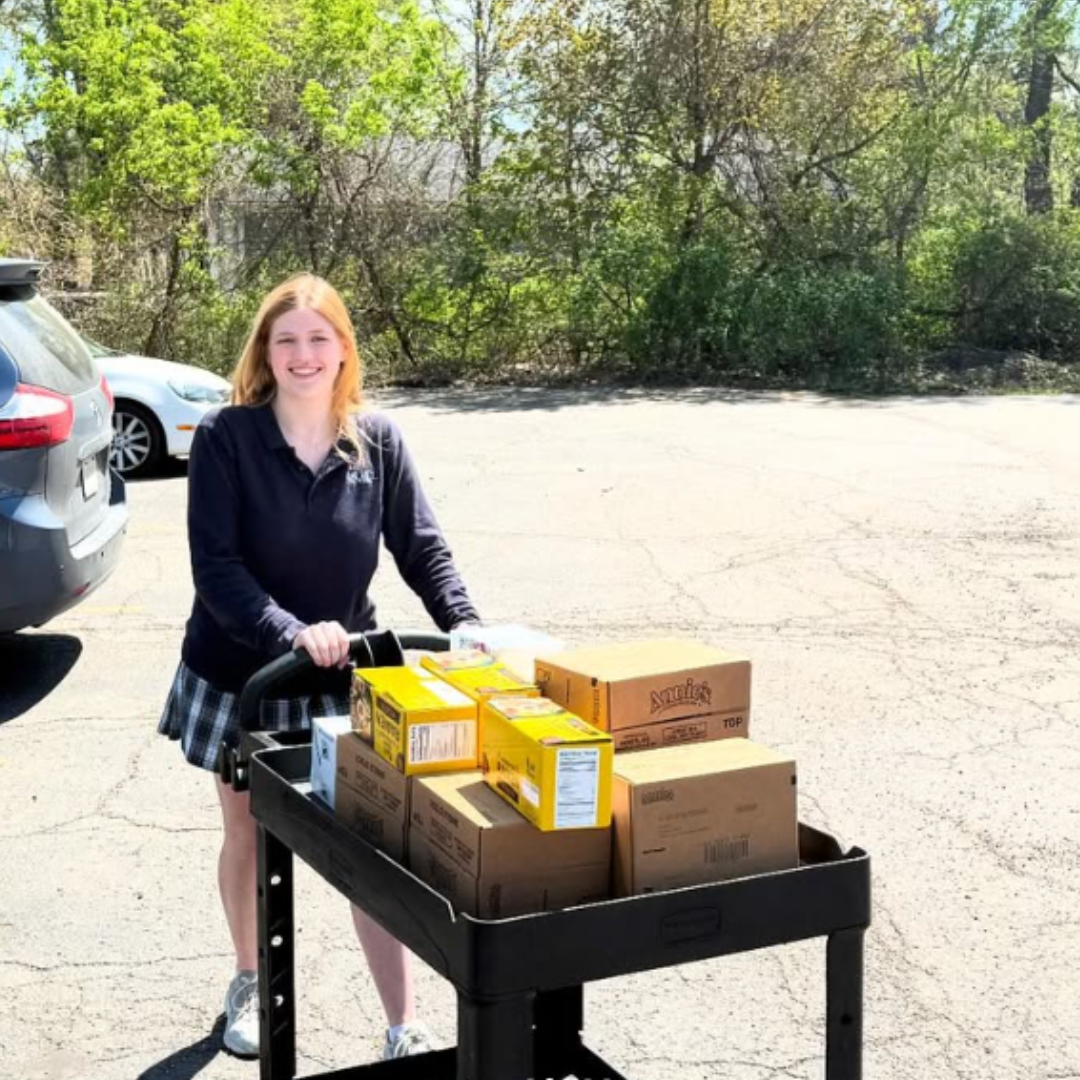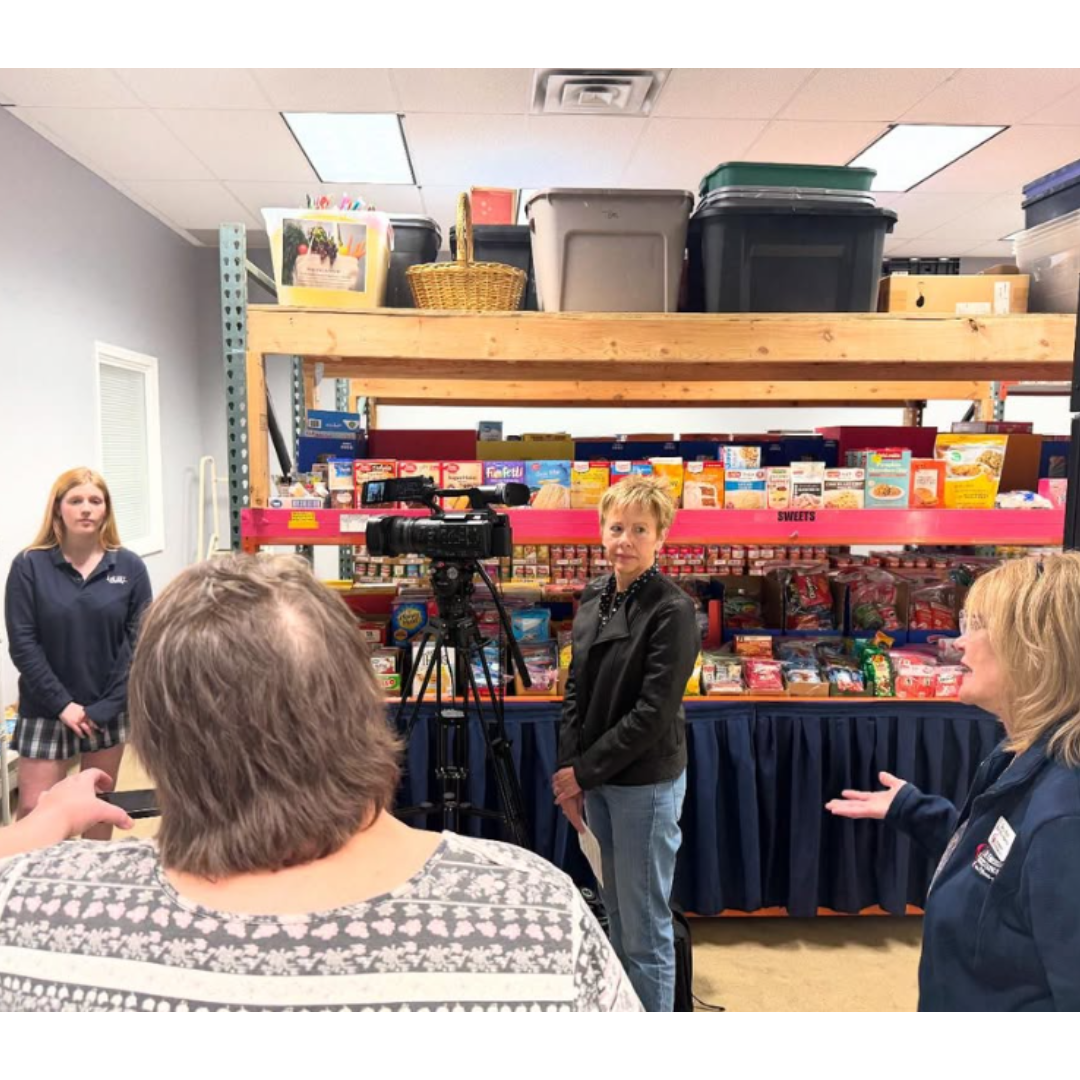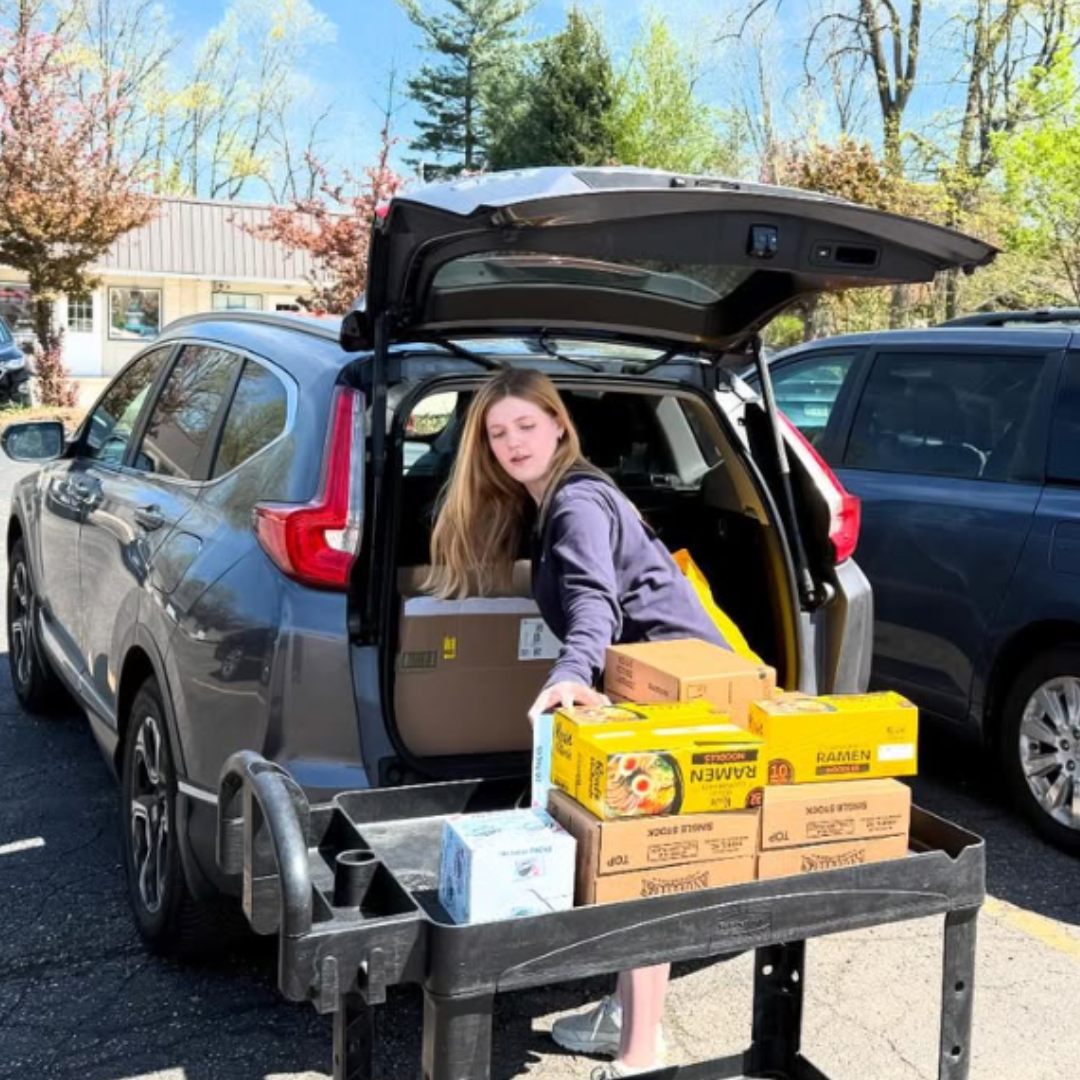OUR ENTREPRENEURS
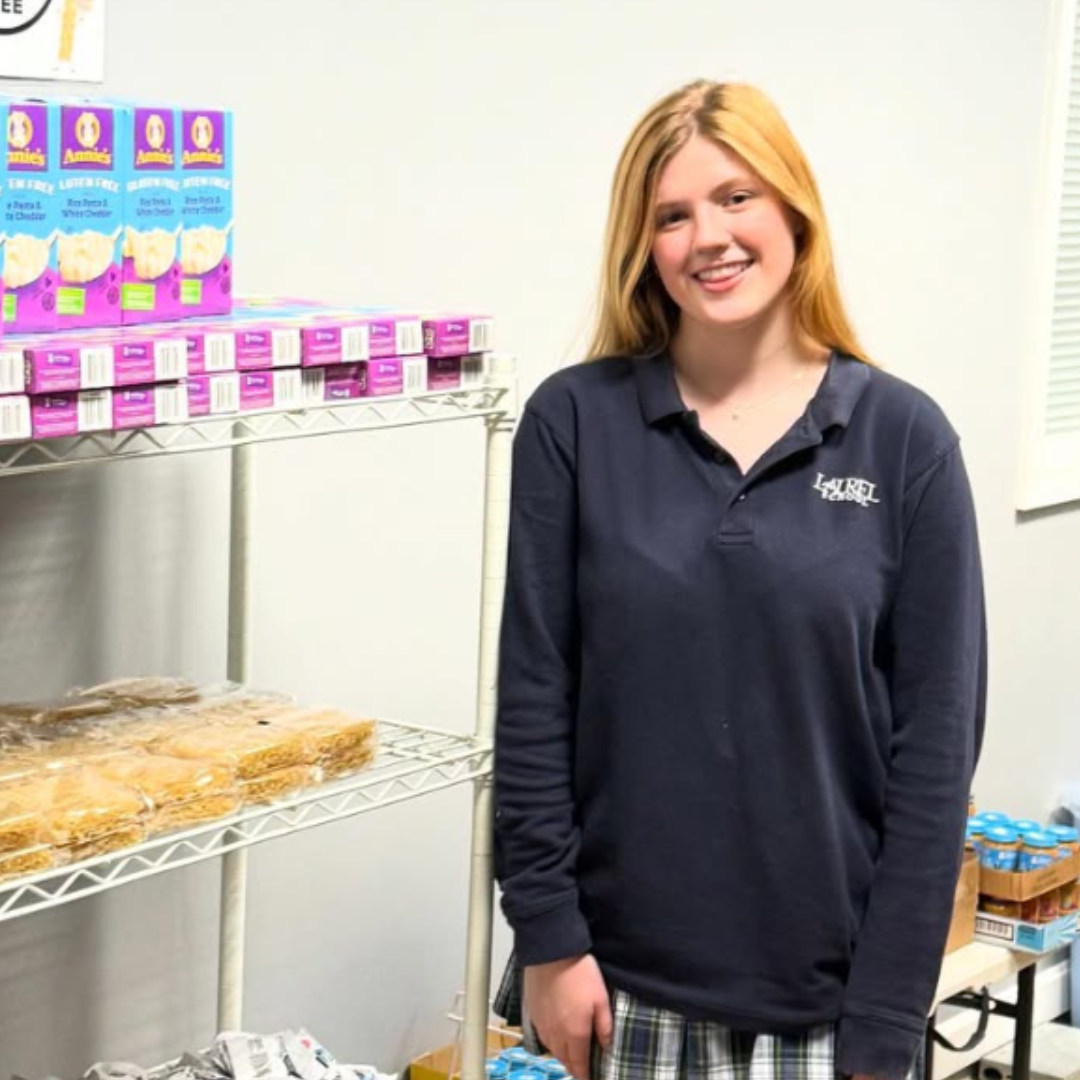
Claire Leland: Celiac Support Collective
Claire Leland of Laurel School started Celiac Support Collective with help from her entrepreneurship teacher. She decided to help others gain access to gluten free foods and education about celiac disease. Claire is a senior and will graduate in 2026. We spoke with her about how her own diagnosis inspired her business development.
Lightly edited for clarity and brevity.
Why did you decide to start the Celiac Support Collective?
I was incredibly sick as a child. I missed countless days of preschool and met with doctors who were clueless as to why I was so sick. After numerous blood tests and endoscopies, they discovered that I had celiac disease. Celiac disease is an autoimmune disease where someone cannot consume a protein which is found in wheat, barley and rye. If gluten is consumed, your stomach will break down and not allow your body to process the nutrients or function properly. Sometimes it’s not just a physical health problem, but it can be a problem to your mental health. If you’re not taking the right precautions, it can lead to a spike in anxiety and depression. Having access to gluten-free food is crucial. Whether someone is gluten sensitive, has celiac disease, or needs gluten-free foods as a part of their diet, I wanted to help make that a possibility. I’ve been able to bring my project to life and explore a topic I’m truly passionate about. I’ve been so fortunate to have a family that can provide me with sustainable gluten-free foods daily, and I have always wondered about people who are unable to walk into a store and buy the food that will make them feel healthy. I think there’s just something so morally incorrect about that. In this day and age, gluten-free food is unreasonably expensive and for those who are less fortunate, it becomes increasingly difficult to afford the food they need to stay healthy. As a 17-year-old girl who has been diagnosed with celiac disease for about 12 years now, I know how life-changing this disease has been. Not having access to the right gluten-free foods can be so dangerous. That’s why I created the Celiac Support Collective.
What was the process of creating your own business like?
I created a business template and that really created a foundation. Honestly, I spoke to a lot of my doctors and used a lot of my resources. I think networking was a big part of creating my business. It’s such a small world, everybody knows each other. When I gave my first donation on April 30 to Emergency Assistance Center in Northfield, Ohio, near the border of Summit and Cuyahoga counties. Joyce Hunt, the woman who runs it, had a lot of connections and was able to get me interviews with Community Focus, Nordonia Hills News, and Hudson Times. Then WKYC ended up seeing all that coverage and running a feature. I think that helped to create a lot of momentum and credibility through all that media coverage. Through that experience, I realized how important connections are in networking because that’s helped provide a stable foundation for the Celiac Support Collective.
What skills have you learned since you started your business?
I would say making connections and building the network. I realized it’s important to know how to email complete strangers. When I was trying to build my network and reach out to food pantries and food banks, that ended up being a very significant part of my project because those were the people that could help me. Those were the people that could help make this a reality. I think as a high school student who’s very busy, it’s hard to sometimes be on top of emails and to want to schedule meetings, but at the end of the day, it’s worth it. I think my business has helped me build confidence and social skills, along with trusting myself. That was a huge factor in successfully building up this business. Throughout this entire process, I’ve had to write a lot, and writing has never been my favorite thing to do. I had a lot of writing when I was writing my business pitch, and I think my writing improved a lot. It was more of a persuasive, argumentative type of writing, and it improved from the beginning of the school year to the end.
What challenges did you face when you started the Celiac Support Collective? How did you overcome them?
I think the challenge was generating revenue at first. I was never big into public speaking. I’ve been a very introverted person my whole life. I think public speaking was my big obstacle. By doing these pitch contests and creating a pitch, I worked with my teacher Mr. Corsaro and Natalia Navarro of For the Flow. I worked with them to be more confident in myself and to trust my gut instincts. That is so important because at the end of the day, I’m the one with this idea. I’m the one who knows a lot about it. I have firsthand experience, and that’s significant. Trusting myself always turned out to be the right answer.
How does your business get revenue? Do you sign up for area pitch competitions or do you rely solely on donations?
It’s been donations, winning the pitch contest and grants. I was a finalist in Teen Accelerate and that was my first big earning opportunity. Then I applied to some Laurel grants, and I think I just put myself out there. I’m a very introverted person, so it’s been really cool to see how far I’ve come. I’ve been doing a lot of work this summer because this fall I will be a high school senior and will be busy. I think my social media has grown quite a bit. I’m not a social media person, so it’s been tricky. I’m building a website that will be a big resource for people giving donations and it might have recipes too. Since I’m working with the Cleveland Food Bank and education about this disease is so important, I also plan to create a pamphlet with information about symptoms of celiac disease and different recipes people can make with donated food.
Do you have employees or team members for your business?
It’s just me right now because I’m going off to college in a year. My brother’s very passionate about celiac disease education because he also has it and I think adding him to the team and having him put his own perspective on this whole thing will be very beneficial. There’s an exclusionary factor to celiac disease, especially as a teenager. He’s going through that stage right now. Having celiac, you have to bring your own meals for sleepovers and won’t have the same meal as other people. Or at restaurants, it can be embarrassing to have to talk to the manager.
What would you say to another student who is looking to start their own business or nonprofit?
I would say research and educate yourself, even if you think you’re the most educated in the field, there’s someone that will always know more than you. That’s what I’ve done. I’ve found it helpful to attend different conferences. I attended one at Nationwide Children’s Hospital. I think talking to professionals and specialists helps you. In my case, it was doctors at Boston Children’s Hospital, Metro Health, and Celiac Kids Connection. I think going into something you’re passionate about is important. That passion helps you set up the foundation of your business and what you want to pursue. That was incredibly important in my case. This year, I applied to be a mentor for children who were recently diagnosed with celiac disease, and then I completed the necessary training. That allowed me to gain a more well-rounded perspective.
You’re graduating this year. What are your plans for Celiac Support Collective and college?
I want to go to a smaller liberal arts college. I think a smaller community could be very beneficial to the Celiac Support Collective. I have found there’s absolutely a need for this business and I really could take it anywhere. I think even helping on campus at whatever college I decide to go to, if I just bring that educational piece. I think I could even expand it to other food allergies or diseases too. I don’t know if I’d want to, but that’s always a possibility. I’m excited to see where it will go.
